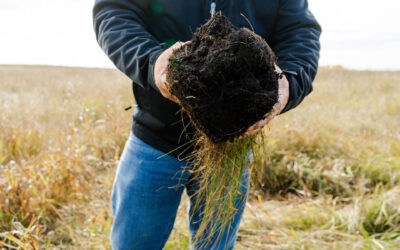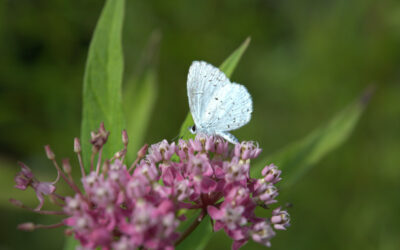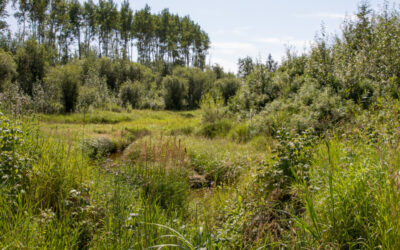Through the ALUS program, the Litke’s have found delight in the changes on the land generated by their projects.
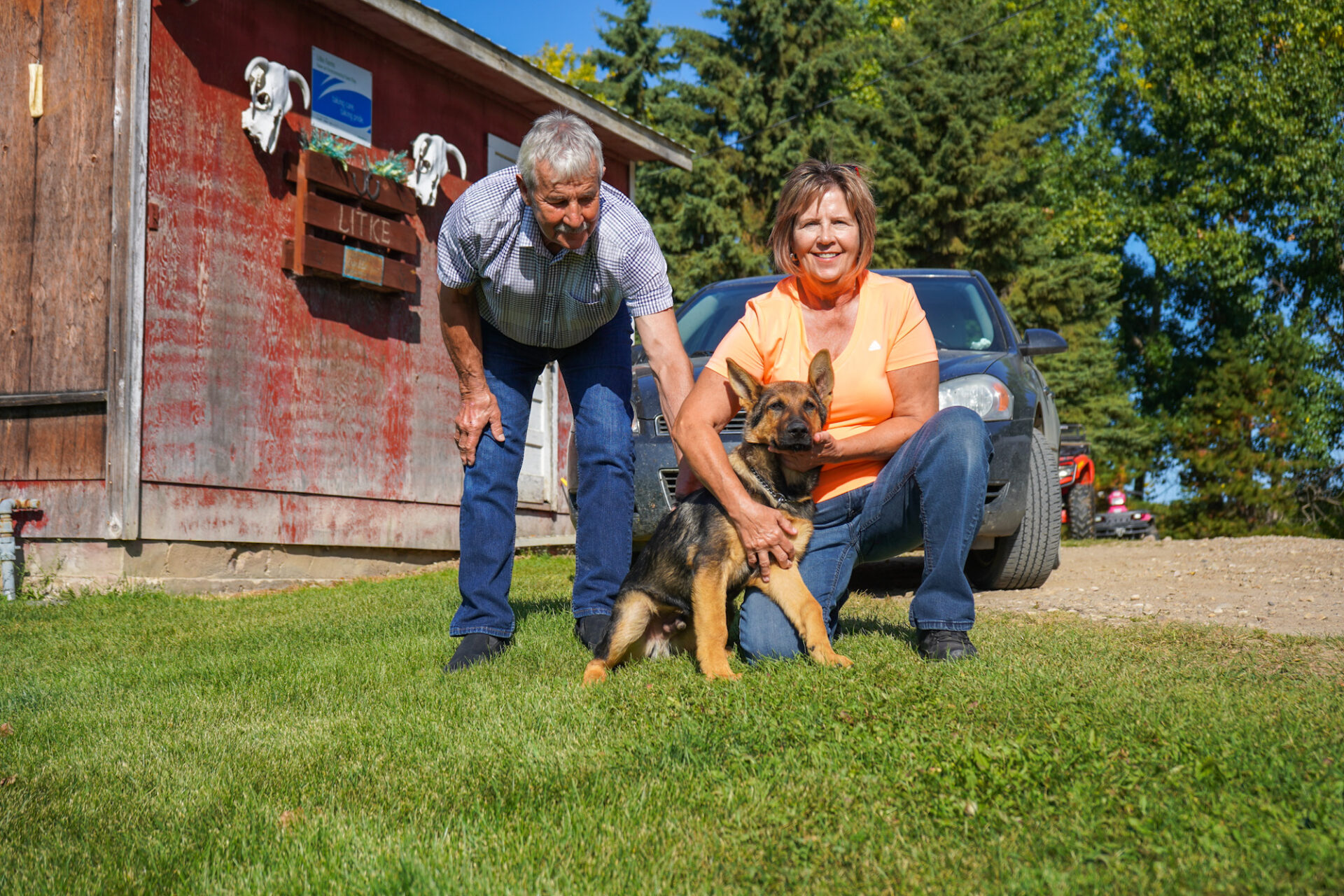
Leslie and Valerie Litke with their dog, in Lac Ste.Anne County, Alberta.
Alberta trailblazers Leslie and Valerie Litke participate in the ALUS Lac Ste. Anne program, a partnership between Lac Ste. Anne County and ALUS. Leslie and Valerie operate L&V Litke Farms Ltd., a cow-calf operation on land that has been in their family since Leslie’s dad purchased it in 1970. With 1250 acres, they are able to offer custom grazing as well as maintain 100 of their own cow-calf pairs. In 2018, they enrolled 396 acres into the ALUS Lac Ste. Anne program, fencing off a lake and building four dugouts.
“There are lots of different birds around here,” said Leslie. “Some I don’t even know what they are! I’ve never seen them before.”
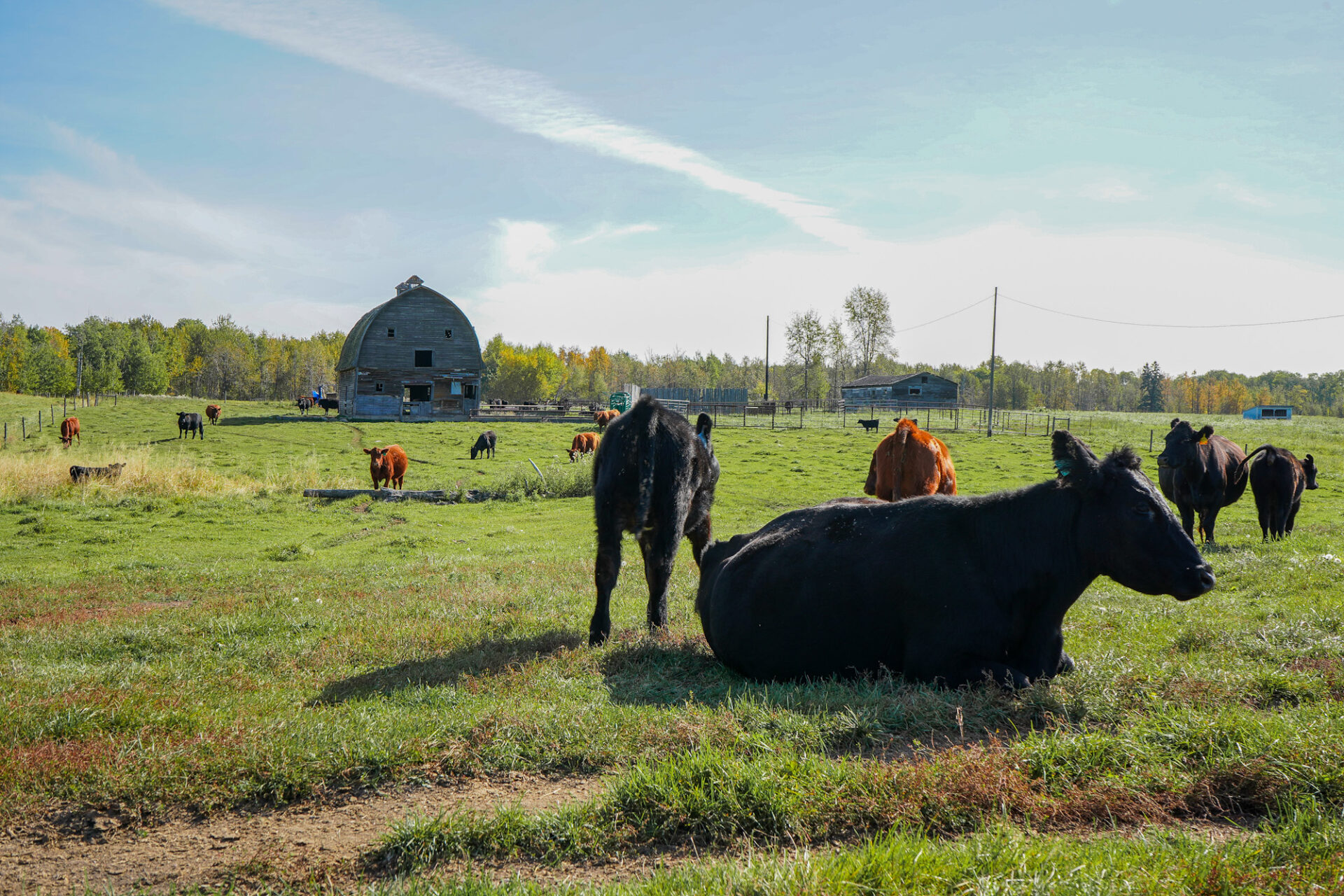
Happy cows, on Litke Farms in Lac Ste. Anne County, Alberta.
The Litke’s work with ALUS was motivated by a desire to keep cattle from directly entering the lake and dugouts. They wanted to stabilize the banks and prevent degradation of the waterbodies. Their projects do that and much more. It helped them get past the challenges of pumping water out of the lake, which requires permits and clearances and would have been expensive to operate with pumping fees and the like. With ALUS, they were able to access an easier, more flexible solution.
“We like the flexibility. Nothing is so rigid it can’t be moved around,” said Valerie.
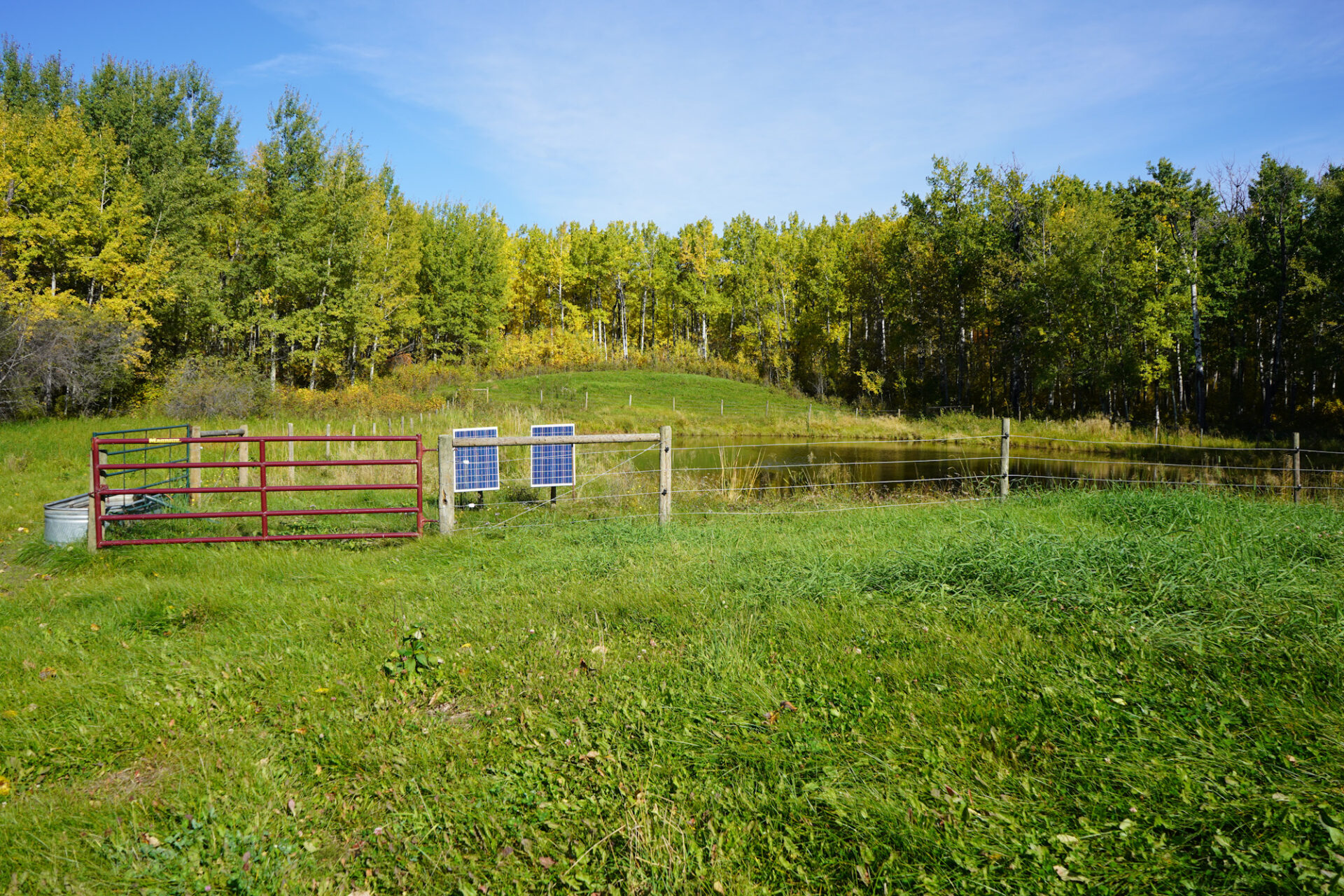
The alternate watering system on Litke Farm, in Lac Ste. Anne County, Alberta.
The Litke’s worked with ALUS Lac Ste. Anne to install an alternate watering system that keeps the cattle away from the water. It has the added benefit that the herds prefer to drink from the watering system!
By protecting the lake, the Litke’s have reduced the amount of faecal nutrients and sediments going into the water and prevented the banks of the lake collapsing into the water. Fencing around the lake and the alternate watering system also improves the quality of the water on the Litke’s land and downstream of them.
By conserving their lake and its surrounding natural habitat, the Litkes have also improved the ability of the land to capture and hold water and the underground aquifers are beginning to replenish. As the ALUS projects continue, the land’s capacity to hold and store water will improve even further. And, as the soil improves, the amount of sequestered carbon will also increase.
” Our favorite part of the program is keeping the cattle out of the water. ALUS funding helped us do that.”
ALUS Canada is proud to count Leslie and Valerie Litke among its Trailblazers in Alberta.

